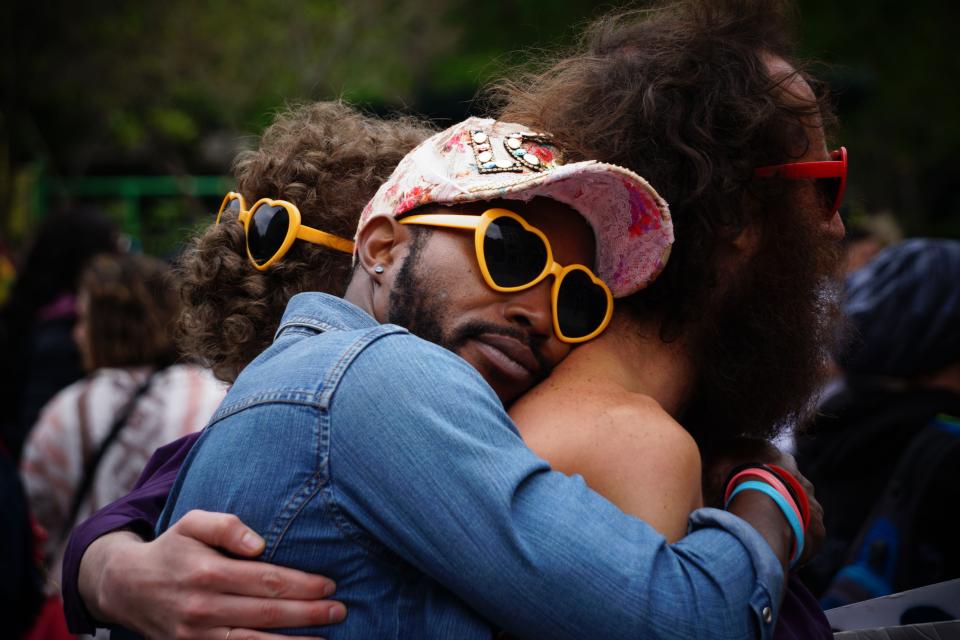Trying to live as a man with integrity in today’s world is a challenging task, but it is sorely needed. It’s no secret that many men are wounded and struggling to acknowledge and heal from their wounds. The #metoo movement has helped reveal the prevalence and intransigence of toxic masculinity. We need more role models of healthy masculinity; we also need to evolve past outdated and unhelpful ideas of what masculinity is supposed to be.
Some common occurrences that can contribute to wounded masculinity are:
- Overbearing or absent parental figures
- Hearing things like “be a man,” “man up,” “grow a pair,” etc.
- Hearing things like “what are you, a girl/sissy/gay?”
- Double standards or lack of accountability (such as the sentiment, “boys will be boys”)

Toxic Masculinity and Shame
Toxic masculinity adheres to strict stereotypes about gender, and often seeks to demean or control women or anyone displaying feminine qualities. By this reckoning, crying openly, having compassion, asking for help, or showing any emotion besides anger, is reason for punishment. Whether or not toxic masculinity is enforced by physical of emotional abuse, the primary motivator employed is shame.
Toxic shame is experienced as the belief that one is deficient, unworthy, or just plain bad (some authors distinguish healthy shame as acknowledgment of responsibility for a mistake, others refer to this as guilt—the difference being the action was bad rather than the person; more often than not, when speaking about shame they are referring to the toxic variety). As you can imagine, toxic masculinity and shame go hand in hand. The tactic of rejecting the parts of a person that don’t conform to a hyper-masculine ideal engenders a sense of wrongness.
If a boy doesn’t feel like he can be a man in the way that his father wants, then maybe he doesn’t believe he is a true man at all. If he is told he is too sensitive, gets bullied, doesn’t like the games the other boys play, and doesn’t have older men to look up to, how will he feel good about who he is without resorting to pleasing others?
Gender is such a fundamental part of our identity, that anytime it is attacked, there is the potential for far reaching consequences to our sense of self, especially if we are at a vulnerable point in development. Confidence in one’s gender, and by extension one’s sexuality, is crucial in feeling a sense of pride, place, and agency in the world.
You can read more on my thoughts about shame here.

Redefining Your Own Masculinity
It’s important to uncover and understand the ways in which gender roles have been put upon us, and the extent to which we want to accept them. It is the forcing of these preconceptions and stereotypes that create wounding, shame, and behavior now labelled “toxic masculinity.” Identifying the messages we received from family or society, and comparing them to our own natural tendencies, is a good place to start. Facing the feelings that come up from this process—whether anger, sadness, disappointment, or regret—is the way toward resolution.
Through this process of discovery, one realizes there isn’t just one way of being masculine. Masculinity also does not mean the absence of the feminine; they are not polar opposites, but two spectrums that exist within every person. At this point, one might start to enjoy taking steps to explore what expressions actually feel authentic through clothing, speech, or simply attitude. There is no wrong way to be, so long as it feels like you—though there are plenty who will say otherwise.

Beyond the Binary
There may be an assumption that an exploration of masculinity only applies to cisgender men. Women tend to have their masculinity rejected and suppressed, while encountering it unrestrained in many men. Many trans men and women have a unique perspective having had a gender (and associated roles) imposed that did not fit their inner experience, and adjusting to new ones. They may also contend with a shift in experiencing and participating in patriarchy. Nonbinary and genderfluid folks may identify with a patchwork of fluctuating gender identities, or reject the binary categories altogether.

None of these issues are simple on a personal level, and they are further complicated by others’ reactions, biases, and missteps. I am committed to holding space for open exploration of any gender-related issues, while acknowledging my position as a cishet man.






